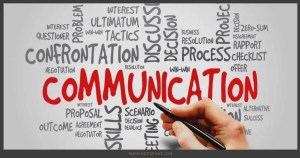
Positive and Negative Member Roles
In every group, there are roles to be played. Sometimes, one role can be played by multiple people, while at other times, one member can play multiple roles. These roles can be either positive or negative, depending on the context (01). The context when such behaviors are expressed is usually the ultimate deciding factor for which category a role belongs. It is important to pay close attention as, in this case, it is not a one size fits all.
Devoid of any particular context, roles can be categorized as positive and negative member roles.
What are positive roles in a group?
- Initiator- Coordinator: This is the group member that presents new ideas and comes up with new suggestions (01). In group meetings, they initiate discussions on possible solutions and processes.
- Elaborator: After ideas have been dropped in bits and pieces, this member expatiates those ideas and provides examples alongside. Generally, this person checks the feasibility of those ideas and points out the possible results (01).
- Coordinator: During the brainstorming process, there are usually a lot of words and ideas flying around, it can almost become muddled up. This member is the one that finds the similarity between those many ideas and pulls them together in a way that makes more meaning to the other members of the group (01).
- Evaluator-Critic: This member evaluates the proposed solutions and ideas (01). They make sure to point out areas of weakness.
- Recorder: The recorder takes charge of the records (01). They ensure the details of the meetings – ideas, suggestions, and proposed solutions are well documented.
What are negative roles in a group?
- Dominator: This is the member that wants to control other members of the group. They also direct the conversations (01). They tend to speak with an air of superiority believing they are the smartest person in the room.
- Recognition seeker: This member always diverts the attention of the group to themselves even if it means the task at hand is left unattended (01). For example, they employ include talking about past accomplishments or making unnecessary noise.
- Special-Interest Pleader: This member is one that is always looking to steer the group in a direction that is beneficial to them alone (01).
- Blocker – A blocker is one who prevents the group from getting things done (01). They always have opposing views from everyone else and will not let the group reach a consensus.
- Joker or Clown – This member is always found playing pranks, telling jokes, or giving sarcastic remarks (01). As a result, this can be a huge distraction to the other group members.
As an individual, you will not always play the same roles in all the groups you belong to. While personality traits inform some roles, others are usually by choice.
Check these reference articles to learn more about the interesting positive and negative member roles:
- saylordotorg.github. 2020. Group Life Cycles and Member Roles. Retrieved on 1 January 2021 URL
- Role of Internal Communication Platform in Employee Engagement

- Five Contextual Dimensions of Communication

- Beginners Guide to Using Instagram Direct Message (DM) for Business

This article is written by:
This article is written and edited by in-house writers and editors. Knowledge Netizen editorial team is committed to providing accurate and informative content. You can cite our articles under the author name "NetizenMe"




